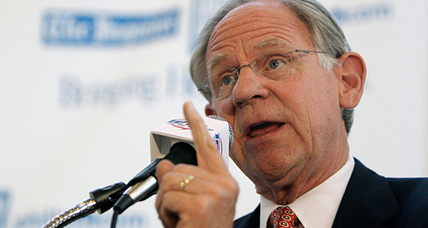Last week, I commented on this blog post by Harvard Professor John Coates, in which he scolds the Securities and Exchange Commission for at least temporarily dropping campaign finance regulation from its agenda. I expressed disappointment that Professor Coates so credulously bought in to the idea that “hundreds of thousands” of “investors” had “written personally” to the SEC in favor of new and unprecedented compulsory disclosure.
Another part of Professor Coates’ post is perhaps even more disturbing. Professor Coates argues that the SEC should press forward with a political spending rule making because abandoning the proposal “will let entrenched business interests focus their lobbying solely on watering down regulation mandated under the Dodd-Frank Act and the 2012 securities law statute, rather than having also to work to influence a disclosure regime.”
As an administrative law professor and former head of a federal regulatory agency (the FEC), I’m not naive enough to think that independent regulatory agencies are free of politics. But in those same capacities, I’m little short of appalled to hear someone argue that an agency should pursue a regulatory initiative not on its own merit, but because it will make it more difficult for the public to oppose other regulatory initiatives of the agency. The very idea of independent agencies is that they bring to problems expertise that is beyond that of Congress, and will apply that expertise in a non-partisan fashion that traditional executive branch agencies cannot. To suggest that an agency continue forward with a rule, using up both their own staff time and the time, treasure, and energy of the public, simply to gain the upper hand over the public in passing other, unrelated rules, is bad government, plain and simple.
In another recent post, I commented on the growing tendency of traditional “good government” types to promote “bad government” practices and procedures if they thought it would help them obtain their ends. Of course, those of us in academia who would venture into active public policy debates must participate in the realpolitik that is going on around us. But it does strike me that we ought to take a bit higher position in support of sound policy making and non-partisan approaches than full time politicos and activists. At a minimum, we ought not let our immediate political goals lead us to support long-term approaches to politics that are contrary to sound policy-making and a government that works for the people, rather than one that sees itself at war with the public.The least we can do as scholars is avoid promoting a bad approach to policy. Years ago, government reformers who sought better policy making frameworks were derided as “goo-goos,” short for “good government.” As we see reformers more and more willing to adopt an anything goes approach to gaining their substantive policy objectives, it is now fair to deride them as supporters of “bad, bad” government, or “baa-baas.” We hope scholars of Professor Coates’ quality don’t slide off in that direction.














